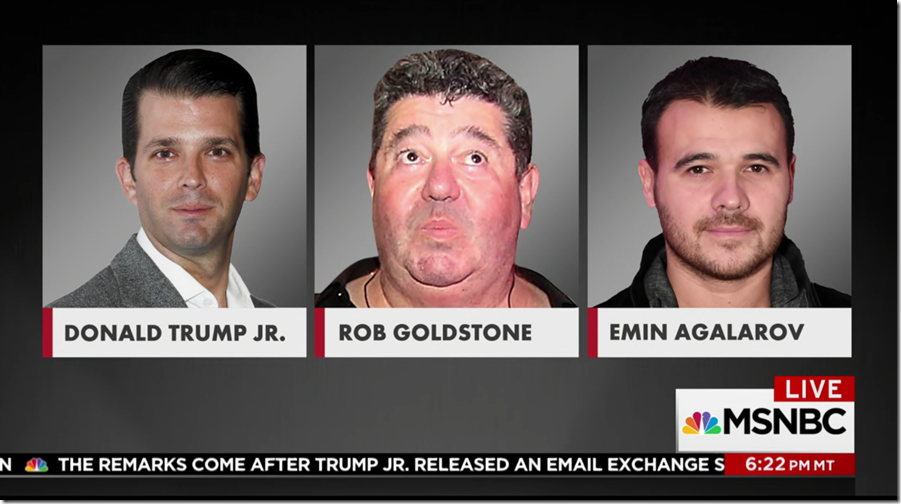Should You Use A Reporter's Name During An Interview?
I recently received this email from the communications director for a major league sports team:
“What is your opinion on a speaker (in our case it’s usually the head coach after games) addressing questions by naming each reporter before the answer or finding a spot within the answer to name the questioner? I hear writers talk about it, how it shows the speaker cares about the media or is making an effort to connect with them more than just spewing a quick answer. Do you think a speaker receives better coverage when naming the reporter in his answer than just to answer the question? I’m torn on it because:
1. My head coach will have to learn each reporter’s name (meaning the non-beat writers), and the reporters who cover us change quite often.
2. It distracts from the answer sometimes. Fans might think, “As a viewer, do I really care that Joe from the local newspaper asked the question? I’m a fan of the team, he should address me too.”
I’ve always been conflicted about this topic for the reasons the emailer stated. In The Media Training Bible, I wrote that:
“Many media trainers teach their trainees to call reporters by their names, arguing that doing so helps forge a warm connection with the interviewer. Perhaps that’s true. But it comes at too high of a price. When you call reporters by name, it makes it clear to the audience that you’re speaking to the reporter, not with them.”
Although I believe that advice is generally sound, does it always apply?
It definitely applies to taped sound bite interviews, in which the person conducting the interview may be a behind-the-scenes producer. If you say that person’s name during the interview, the news station will probably be forced to edit it out—or drop that quote altogether.
But does it apply to a live press conference?
On one hand, naming reporters might help make the reporter feel valued. Reporters may even want to edit their name into the piece to show that they’re the one who asked the question (and let’s face it—hearing their name may also satisfy their ego).
But on the other hand, if the head coach doesn’t know a few people, it will become abundantly clear to everyone watching that they don’t know the reporter. In addition, reporters from competitive outlets may not want to use otherwise great quotes that name their competitors. Plus, as the emailer suggested, it may interfere with the connection the coach should be making with the viewers and fans outside of the room.
[poll id=”42″]
The emailer and I would both like to learn from you on this one. Please select an option from the poll above—and leave your more complete thoughts in the comments section below.




Greaet question and post, Brad. Thanks for taking it up and sharing with your audience.
Even in a news conference setting, the speaker should phrase virtually all responses as if they’re talking to the public…in this case individual fans. Media outlets are simply the conduit through which this is done. There’s plenty of time around a team complex or practice field for a coach to drop a beat reporter’s name in an effort to satisfy the reporter’s ego.
I could very well be in the minority here…but using names in the contexts mentioned in this piece often comes across to me as condescending and smarmy.
Adam,
Great comment — thank you! You made a point that showed some of my own myopia on this topic. I considered two main choices — use the name or don’t — but now realize that’s a bit of a false choice. You can do both: use the reporter’s name to build rapport (off camera) and not use the reporter’s name when it could serve as a distraction (on camera).
Appreciate your insights,
Brad
Purely as a viewer of news, which is my sole perspective, I would say no names or only rarely should a circumstance clearly call for doing so. Put in storytelling parlance, with which I’m a bit more knowledgable, the name pulls a viewer out of the story (or in this case, from the message). It distracts, bringing up subtle yet disruptive questions. Am I supposed to know more about the reporter? How close are they to their subject? Is that relationship affecting the reporting? Oh, and what did I just miss while my mind was wandering? 😉
John,
I really enjoyed your point about a reporter’s name “pulling you” out of the action. You’re right that the use of the reporter’s name could make the viewer wonder about the reporter, which serves to distract from the main point the spokesperson is trying to make.
This is certainly not the type of issue that would doom an otherwise solid interview — but as a nuanced point, it can contribute to an overall impression.
Thanks for commenting,
Brad
Reporters name at no time is relevant to the story. No need to use it.
Hi Brad,
I agree with most that there’s no benefit to using a reporters name in a scrum or news conference setting.
However, if the coach is granting a one-on-one interview to an outlet, then I can see using the reporter’s name (though not in every answer). While you want to remain focused on speaking to the audience through the reporter, I think people also want to see two people having a normal, natural conversation and using the reporter’s name can help the subject come across as more friendly, relaxed and accessible. As an added benefit (for the broadcasting station), dropping the reporter’s name a couple times helps emphasize that they’re having an exclusive interview with the coach.
I would say it’s much more important to give an insightful answer than including a reporter’s name.
I completely concur with Brett. Even when doing a one-on-one interview, it was annoying when an interview guest would say my name in virtually every soundbite. It became artificial, as if someone had trained him to do that…and they probably did. I do think in a news conference, it can be a positive if a reporter’s name is said.., but in the first part. “Hey, Joe, good to see you..,” then leave the comment ‘clean’ so everyone can use it, without the competition’s name being used.